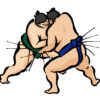What does otsukaresama desu/deshita mean English? おつかれ?お疲れ?

“Otsukaresama”
“Ostukaresama desu”
“Otsukaresama desita”
Japanese people say the phrases above in many situations such as in an office, at school, in the house, or when someone has done some work, or after someone has made an effort.
Let’s take a closer look at “Otsukaresama”.
What does otsukaresama deshita / desu mean?
“Otsukare(おつかれ:お疲れ)” is a word often used in Japan.
If you lived in Japan and wanted to build a good relationship with the Japanese people around you, I recommend you to use this word well.
The verb form of “otsukare” is “tsukareru(つかれる:疲れる)”.
The noun form is “tsukare(つかれ:疲れ)”.
The meaning is “tiring”.
In Japanese language, when you want to speak politely, we put “o(お)” or “go(ご)” in front of words.
(You can not put “o" or “go" to any words, as there are rules for that)
And sometimes “sama(さま:様)” is added at the end of the word.
“Sama" is also a word for expressin a polite feeling.
This is a suffix that you can use to call a person’s name or to say something politely.
In addition, other polite words “desu(です)” and “deshita(でした)” are also polite expression.
So, let’s combine the above expressions into one.
“Otsukaresama desu
(おつかれさまです:お疲れ様です)”
“Otsukaresama deshita
(おつかれさまでした:お疲れさまでした)”
Are you getting confused now?
For that reason, it might be easier for you to separate “otsukaresamadesu” like this:
“o tsukare sama desu”.
Yes?
By saying “o tsukare sama desu” to somebody you can appreciate or value the person’s hard work (tiredness, hardship).
Those who are told can feel that they were valued.
If it says in English, it is as follows.
· Good job!
· Well done!
· Thank you for your help, work, or the like.
· You have done such a lot!
· You must be tired.
In Japan, of course, there are many workplaces where people give such greetings to each other. When someone leaves the workplace every day, he/she says “otsukare sama desu/deshita" to his/her colleagues who are also leaving for their home or say “Otsukare sama desu/desita” to those who are still in the workplace.
Of course, even after working as a volunteer, you can say the phrase to each other, or you can tell a family member who helped the housework.
“Desu" or “deshita" ??
“Otsukaresama desu"
“Otsukaresama deshita"
Both are polite expressions. Generally,
“Desu" is “is"
“Deshita" is “was"
If you remember like above, it would be helpful in some ways.
If you get confused as to which you should say “desu" or “deshita", you could just choose “desu".
How about “go kurou sama deshita"??
There is a similar expression to value somebody’s hard work:
“gokurou sama deshita
(ごくろうさまでした:ご苦労様でした)”.
This is also a word to appreciate somebody’s hard work.
But, you should use ‘o tsukare sama desu / deshita’ to your superiors.
This phrase is considered to be used by a person who is in a superior position than the person who wants to say it to.
However, there are places where it’s customary to say the phrase to each other regardless of the hierarchy, so if you live in Japan, you need to check that on a case-by-case basis.
Shorter version of “otsukare sama"
“Otsukaresama” is a useful word that you can use to almost anyone, so if you memember this you will be fine when you talk to Japanese people.
If you want to say it casually to your friends and colleagues, you can only say “Otsukare(おつかれ:お疲れ)”.
There is even a shorter version called “Otsu” which used to be a net slang. Recently, it is also used in everyday conversations between young people, so it may be okay to use it for friends and colleagues as well.
















